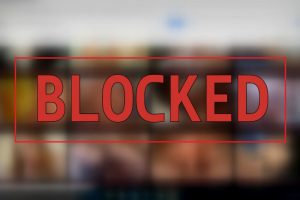 A controversial bill blocking gambling sites was deemed unconstitutional late last month by the Quebec Supreme Court. The provincial government which is trying to add millions of dollars to the local lottery with this law, however, has been now reported to appeal the decision.
A controversial bill blocking gambling sites was deemed unconstitutional late last month by the Quebec Supreme Court. The provincial government which is trying to add millions of dollars to the local lottery with this law, however, has been now reported to appeal the decision.
Bill 74, passed in May 2016, forced Internet service providers to block access to gambling sites, which were unauthorized by Loto-Quebec. The legislation was adopted in order to protect consumers from problem gambling, the province claimed back then. However, it was seen as highly controversial by many who said it allowed the government to impose censorship and create a monopoly over all forms of online gambling. On July 18, the Quebec Supreme Court mandated that the bill was unconstitutional.
When the legislation was rejected, the minister of finance said the government would analyze the decision. His office would not comment the ruling and did not say whether it plans to file an appeal. A local news outlet Carrt, which publishes news and analysis related to the telecommunications sector in Canada, now reported that the government would be appealing the decision.
According to its source, who is a Quebec Department of Justice official, the Attorney General of Quebec will file an appeal with the Quebec Court of Appeal. This will happen on or before August 24, says the publication.
If the province does decide to appeal the Supreme Court ruling, this will be another chance for Loto-Quebec, the province-operated lottery, to eliminate its competition. It is the only entity licensed to offer online gambling services to Quebec residents. The proceeds from its operations, including the Espacejeux online platform, go into the province and to local communities, which is why Bill 74 has so many supporters in Quebec’s legislature.
Supreme Court: The Law Does Not Protect Consumers
 In 2015, the Government of Quebec said it needed to put an end to illegal online gambling and to do that, it introduced amendments to the Consumer Protection Act in the 2015 Budget. The province argued that all the unlicensed, offshore gambling sites fueled the increasing gambling addiction in the Canadian society and in Quebec, in particular. This was, therefore, a public health issue that needed to be addressed.
In 2015, the Government of Quebec said it needed to put an end to illegal online gambling and to do that, it introduced amendments to the Consumer Protection Act in the 2015 Budget. The province argued that all the unlicensed, offshore gambling sites fueled the increasing gambling addiction in the Canadian society and in Quebec, in particular. This was, therefore, a public health issue that needed to be addressed.
To assist with this task, Loto-Quebec created a blacklist of websites, which would be updated regularly and received by all Internet service providers (ISPs). Then, the Internet companies would block their customers’ access to all blacklisted gambling sites.
In 2016, the amendments, compiled in Bill 74, were passed and came into effect, which prompted the Canadian Wireless Telecommunications Association to challenge the law in court. The industry group, which includes several local ISPs, argued that Quebec does not have the jurisdiction over Internet providers. Under the Telecommunications Act, Canadian Radio-television and Telecommunications Commission has the jurisdiction.
Rejecting the bill, the Supreme Court pointed out to several inconsistencies in Quebec’s justification of the law. Problem gambling rates in Quebec have not increased and the amendments did not address the public health issue in a direct way. In fact, forcing ISPs to block access to gambling sites only aimed at increasing the province’ revenues, the Supreme Court reads. The blocking scheme is inconsistent in several other respects, including net neutrality and the protection of the freedom of expression.


















